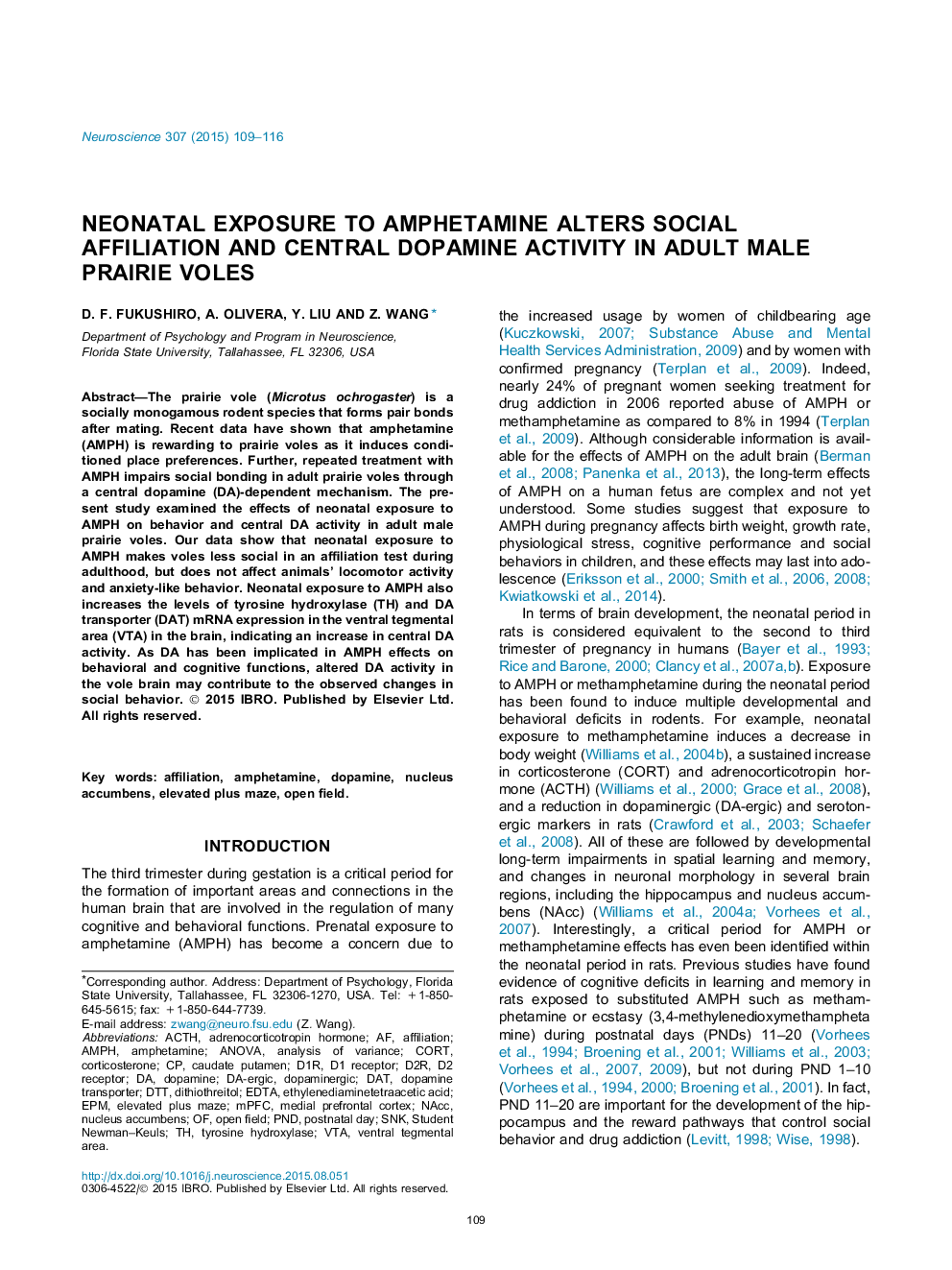| کد مقاله | کد نشریه | سال انتشار | مقاله انگلیسی | نسخه تمام متن |
|---|---|---|---|---|
| 4337442 | 1614769 | 2015 | 8 صفحه PDF | دانلود رایگان |
• Neonatal amphetamine disrupts social affiliation in adult male prairie voles.
• Locomotion and anxiety-like behaviors were not affected by neonatal amphetamine.
• VTA dopaminergic markers are increased in amphetamine-exposed voles.
• Disrupted social affiliation may be related to increased central dopamine activity.
The prairie vole (Microtus ochrogaster) is a socially monogamous rodent species that forms pair bonds after mating. Recent data have shown that amphetamine (AMPH) is rewarding to prairie voles as it induces conditioned place preferences. Further, repeated treatment with AMPH impairs social bonding in adult prairie voles through a central dopamine (DA)-dependent mechanism. The present study examined the effects of neonatal exposure to AMPH on behavior and central DA activity in adult male prairie voles. Our data show that neonatal exposure to AMPH makes voles less social in an affiliation test during adulthood, but does not affect animals’ locomotor activity and anxiety-like behavior. Neonatal exposure to AMPH also increases the levels of tyrosine hydroxylase (TH) and DA transporter (DAT) mRNA expression in the ventral tegmental area (VTA) in the brain, indicating an increase in central DA activity. As DA has been implicated in AMPH effects on behavioral and cognitive functions, altered DA activity in the vole brain may contribute to the observed changes in social behavior.
Journal: Neuroscience - Volume 307, 29 October 2015, Pages 109–116
